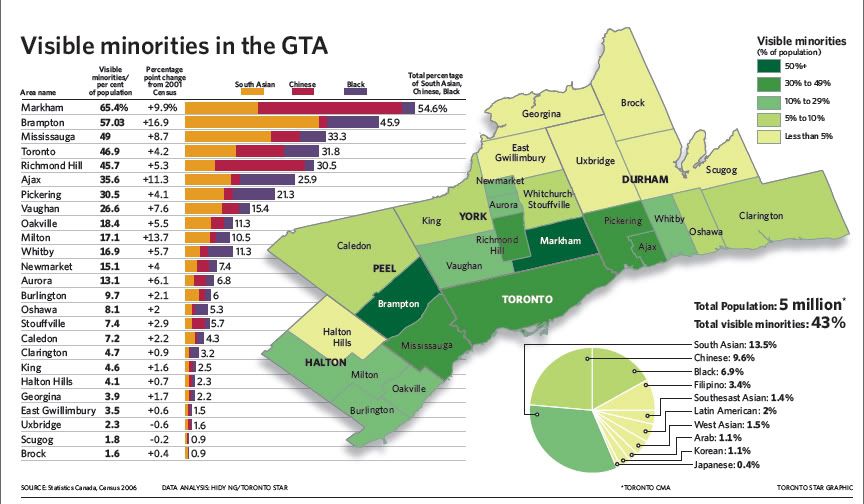 |

I don't think about the ethnic or racial details of my friends -- unless it specifically comes up for some reason. And it generally doesn't come up -- unless some foolish political correctness demands that it come up, in the form of racial quotas or the like.The problem isn't that the HRCs are racist (they may well be, I don't know the inner workings of their staff and supporters). The problem is that the cases filed with the HRCs are categorized by groups deemed to be vulnerable to discrimination. The whole point of the HRCs is to protect such "minority" groups from majority group discrimination. They are set up to rule on differences, or at least complaints made by those "different" who want to be treated the same as everyone else.
[H]uman rights commissions judge everyone based on those irrelevant criteria. They immediately assign you your political and legal status based on your race, sex, sexual orientation, etc. They ignore Martin Luther King's call to be judged by the "content of our character, not the colour of our skin".
Canadian minister of citizenship, immigration and multiculturalism, Jason Kenney, has great plans to welcome between 240,000 and 265,000 new permanent residents.In 2007, projecting for 2008, another law firm, the Campell Cohen law firm, announced that:On November 28, 2008, Minister Kenney announced that he is committed to his immigration program to balance Canadian's [sic] economic, humanitarian and family reunification goals. Minister Kenney plans to include up to 156,600 immigrants in the economic category; 71,000 in the family category; and 37,400 in the humanitarian category.
Citizenship and Immigration Canada announced...that the target for permanent residents will increase by 15000 in the upcoming year [of 2008]...
In 2007 Canada plans to admit between 240 000 to 265 000 permanent residents, up from a range of 225 000 to 250 000 this calendar year.
So, the projected acceptance went up for 2008, and remained high for 2009 (higher than for 2006), despite a more conservative government, and a minister of citizenship, immigration and multiculturalism who plans to rewrite the citizenship test because Canada "can't afford to be passive about the challenges of integration."
If Jason Kenney is still concerned about the integration of immigrants, after so many years of immigration, shouldn't he be questioning what it is about these newer immigrants that makes them less likely to integrate, rather than rewriting the citizenship test?
I hope Ezral Levant is also able to help out Kenney with these questions.


 |
A Muslim chef who accused the Metropolitan Police [he worked in the police training college in Henden, North London as the catering manager] of religious discrimination when told he must handle pork has lost his tribunal case.


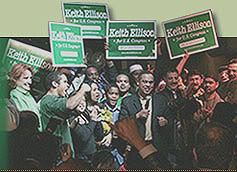 |
Green is considered the traditional color of Islam, likewise because of its association with nature. This is for several reasons. First, Muhammad is reliably quoted in a hadith as saying that “water, greenery, and a beautiful face” were three universally good things. In the Quran, sura Al-Insan, believers in God in Paradise wear fine green silk. Also, Al-Khidr ("The Green One"), is a Qur’anic figure who met and traveled with Moses. The flag of Hamas, as well as the flag of Iran, is green, symbolizing their Islamist ideology.Just to give Congressman Ellison the benefit of the doubt, I went to his official congressional website listed under "United States House of Representatives" to see how he represents himself officially.
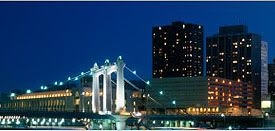 |  |
Former editor-in-chief of CBC News Tony Burman was interviewed recently by the ever-adroit Steve Paikin of TVO (who I doubt will ever go to a Qatar station to make his point, and his career) about his new position of managing editor for Al Jazeera English.
Burman is working on a possible new presence of Al Jazeera English on Canadian television. He appeared on the defensive during the whole interview, as though he was on an up hill battle to convince the Canadian public, and the Canadian Radio-television and Telecommunications Commission, to include this channel on their viewing list. His anti-American, anti-Western and anti-Canadian stance is evident in these quotes I have provided from the interview.
But, what else would one expect from a former CBC employee?
Here are the quotes:
I have to add that Burman's speaking style is mediocre and his words are at times undecipherable (just compare him to Paiken). And this is someone who spent the past 35 years or so as a leader in a national television and radio broadcasting service.Anything [i.e. the Al Jazeera network] that is detested so much by Bush, Rumsfeld and Cheney must have some redeeming merit to it.
**************
Our feeling is that we serve a wider interest than simply fawning after what the U.S. government does.
**************
We bring to the table a far more global, less parochial, less Western perspective.
**************
It was only after 9/11, when Al Jazeera had the temerity to actually report, that contrary to what was being claimed by the Americans, that civilians were being killed in Afghanistan, that Rumsfeld, Bush and Cheney turned on it.
**************
That whole myth of an inappropriate relationship between Al Qaeda and Al Jazeera is nonsense.
**************
[Al Jazeera English’s] lens is very much of the perspective of the developing world. It tries to bring to the stage the voiceless, the peripheral part of the world, dare I say the majority of humanity, who often get ignored and marginalized by the centers of power.
**************
What it means…to a Canadian, or to an American, is that you have a far more comprehensive, a far more balanced view of the issues in front of us.
**************
It’s not biased, it is not ideological, but what it is is it is a greater reflection of the totality of this planet than you get in a narrow Western-centric, American-centric coverage that most of has have had in front of us for years.


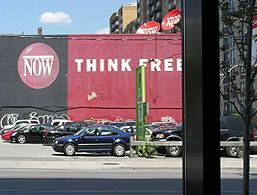 |


There are many ways to combat Islam. Some important strategies include: forming grass-roots and popular organizations; influencing government policies such as changing immigrations laws pertaining to Islam; writing about Islam both in an informative and analytic manner.
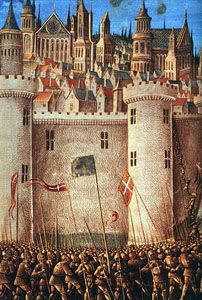 |

That's the problem with immigration. We are forced to take people on a human level...I should have written something like:
We are forced to behave towards immigrants in a humane way (meaning sympathetic, if not compassionate).Of course all immigrants are human. But their very presence taxes our own human reflexes. Many people instinctively know, despite the MSM's assertion to the contrary, that Muslim immigrants are dangerous to our society. So, how should we behave towards individual Muslims, who are indeed many times nice people? Should we be antagonistic towards them? Sociable? Aloof? Generous? Tolerant?

I spent a few days mulling over your debate with Supna.
The conclusion I came up with, which I have posted at my blog "Let's get on with the business of defending ourselves against Islam" is that like nominal Christians and reform/nominal Jews (maybe I should call them all cultural - add in the religion here), moderate/nominal/cultural Muslims are dangerous to society. All these groups almost always seem to be liberal, so besides promoting incorrect versions of their religions, they also push for liberal agendas.
I don't think Supna, despite her best intentions and pleasant personality, is able to bring anything forward in terms of moderate Muslims: no concrete and feasible ideas and no authoritative moderate group. As you say, most of her statements are wishful thinking, leading us down dangerous paths.
It is time to forfeit this group which has been called moderate, because even if it does exist, it is of no use to us, and is in fact dangerous in the long run in the fight against Islam.
I think this was the important insight I obtained from your debate.
Thanks for your thoughts on this. It's a tough issue. It's tough to say that the Supnas of the world are dangerous.
But two qualifications. First, Supna is doing something very positive in constantly bringing forward the true, negative aspects of Islam. For many people, hearing this message under the rubric that Islam itself is not bad may be the only way they can at present receive it. For observant audiences, her constant wishful thinking about the "good" Islam will not cancel out the negative things she says about Islam.
Second, we should understand there's nothing new or invidious in saying that certain people have a dangerous message. For example, Daniel Pipes, as I wrote at FrontPage in '05, is, at least half the time, an Islam apologist, meaning he's trying to make people believe that Islam is not the problem and threat that it really is. This makes him objectively dangerous. Supna works for Pipes and shares his basic outlook about Islam, so naturally she also is an Islam apologist.
Here is the section of my article (part one, second web page of four) in which I described Pipes as an apologist:
KPA replies:Pipes's ambivalence
Given Pipes's admission, in some articles, that moderate Islam has never existed as a concrete social and religious reality, and that "radical" Islam is therefore the historic norm of the faith after all, what explains his continuing insistence, in other articles, that radical Islam is only an extremist offshoot of the true, moderate Islam?
An opening into Pipes's contradictory thoughts on the subject can be found in remarks he wrote for an Islamic American magazine, The Minaret, in September 2000 (and which he repeated in the introduction of his 2002 book, Militant Islam Reaches America[2]). After praising Islam for the "extraordinary inner strength" it imbues in its followers and the great cultural achievements of its classical period, he said:
"I approach the religion of Islam in a neutral fashion, neither praising it nor attacking it but in a spirit of inquiry. Neither apologist nor booster, neither spokesman nor critic, I consider myself a student of this subject."
This is an odd comment for an intellectual to make. Since when does studying a subject preclude one from criticizing it? Since when does scholarship require non-judgmentalism? If Pipes were a student of, say, Soviet Communism, like his father the historian Richard Pipes, would he say that his scholarly approach to Marxism-Leninism prevented him from criticizing the Soviet Gulag, the millions of political murders, the enslavement of entire nations? Also, how can Pipes as a scholar expect his evaluations of Islam to be considered reliable if he announces up front that he will not render a negative judgment about it?
In any case, Pipes's personal motivations, whether for not wanting to be seen as a critic of Islam (which would be an understandable tactic of self-preservation given his exposed position), or for actually not wanting to be a critic of Islam (which would be harder to excuse), are not our concern. Pipes has already given us a meaningful and satisfactory explanation of his political motivations for avoiding a too searching critique of Islam: his fear that if we come to the conclusion that Islam is not and cannot be moderate, we will lose any basis for a constructive policy toward it and will be doomed to regard all Muslims as our eternal enemies. This is not a concern that can be lightly dismissed, and is probably shared by millions of Westerners. We will return to it in the second part of this essay.
What matters to us here is not Pipes's motivations, but the truth of his statements about the nature of Islam and about his role as a student of it. For a scholar in a field so filled with bloody controversy, there can be no such thing as the non-judgmental neutrality that Pipes attributes to himself. For example, Communist regimes, according to the most authoritative book on the subject, The Black Book of Communism, killed upwards of 100 million unarmed civilians in the course of the 20th century. If I speak this true fact about Communism, I am, perforce, a critic of Communism. If, conversely, I choose not to be critic of Communism, I can only do that by ignoring or minimizing its crimes, in which case I have ceased to be its student and have become its apologist. Therefore Pipes's claim that he is neither a critic nor an apologist is not true. As we have seen, sometimes he is one, sometimes the other. When he tells us that militant Islam is a fearsomely dangerous movement that threatens us all, and when he tells us that reformist Muslims falsely imagine the historical existence of a moderate and liberal Islam, he is being a critic. But when he tells us that only modern Islamism—not historic Islam—is dangerous, and that moderate Islam is the solution to radical Islam, he is being an apologist.
The false distinction between Islamism and Islam
Insofar as Pipes is a protector of Islam, the chief way he protects it is through his distinction between modern Islamism, with which he associates everything bad about Islam, and traditional Islam, which he describes, not neutrally, but in respectful, glowing tones....
Yes, your point about Supna's contributions is well taken, given the fact that it is HER religion she is criticizing. I think many Muslims do really just simply want to live their own lives, and follow their own culture and religion. Maybe these do qualify as moderates in Supna's eyes. We cannot fault them for that. That's the problem with immigration. We are forced to take people on a human level, even if we know that ultimately they are dangerous and destructive to us.

